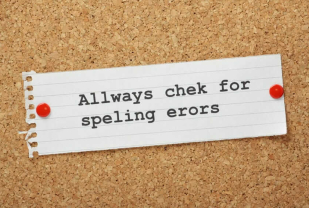Academic writing is any written assignment done for educational purposes. In written assignments, ideas need to be communicated clearly and precisely. Your tutors won’t be expecting too much in the way of creativity or any surprising discoveries in your papers. Rather, they will be impressed by clear expression, logical structure and a broad vocabulary. What is appropriate for text messages or social network posts is not necessarily right for academic papers. Just take a look at some free college essays samples and note the way they are written to feel the difference.
When composing the latter, you should observe the following 11 principles:
1. Hedging
Hedging means distancing yourself from your writing. In other words, imagine that there is a hedge between you and what you write, so that will be thoughtful and cautious about your claims.
The following practical hints can help you:
- Avoid first person pronouns (I, my, we, our) as much as possible.
- As an option, start sentences with impersonal statements: It is believed, It should be noted that.
- Use modal verbs such as could, should, might, can and may to soften your claims.
Here’s an example of translation from everyday communication into the language of academic writing:
2. Complexity
Complexity means using more complicated grammar. College-level grammar helps not only to demonstrate your mastery of the language, but also to express more complicated ideas.
Practical hints:
- Use more noun-based phrases, instead of verb-based ones.
Example: It is hypothesized that better learning outcomes can be the result of improved concentration. (Instead of: Better learning outcomes are the consequence of how we concentrate). - Try to embed subordinate clauses.
Example: The role of top players who brought their team the most goals this season cannot be underestimated. - Use verbs in the passive voice.
Example: After effective intervention programs are developed, the situation with overweight in adolescents can improve.
3. Formality
Formality means avoiding colloquial forms and contractions, which are inappropriate for academic writing.
Practical hints:
- Avoid slang terms such as kid, awesome and cool.
- Avoid phrasal verbs such as get off, go on and get out.
- Avoid overused and vague words such as thing, matter and business.
4. Objectivity
Objectivity means putting aside personal biases and opinions.
- discuss possible limitations to your judgments.
- avoid overly categorical expressions such as surely and definitely.
5. Accuracy
Accuracy means avoiding exaggeration or distortion in academic writing. Avoid playing with facts and figures to defend your position. Always specify the circumstances or context in which a given fact is significant. Use the expression ‘one of’ to avoid exaggeration.
6. Precision
Precision means trying to use statistics and figures to support your claims and always indicating the source of your information.
7. Explicitness
Explicitness means making the relationships among different parts of your text clear. Signaling words (similarly, on the other hand, because however, in addition, for example) are often useful in maintaining explicitness.
8. Logic
Logic means making clear the relationships among the issues discussed. Try to show how one object influences another, or that a direct (or indirect) relation exists between them.
9. Responsibility
Responsibility refers to how you treat the facts and the materials you borrow from other resources. It’s your responsibility to represent the facts as they are and always to give credit to other authors.
10. Non-discrimination
Non-discrimination is extremely important for academic papers. You will need to use language that avoids all kinds of social, gender and racial discrimination. Make it a rule to use ‘he or she,’ ‘limited abilities’ and ‘African Americans’ instead of gendered and culturally insensitive language.
11. Context
Context means establishing connections between your writing and the wider world. On one hand, you don’t need to reinvent the wheel, or to make important discoveries on your own. On the other hand, you do need to carry out at least basic research to know what experts say on your topic.

![How to Write a 5-Paragraph Essay [+Bonus Template]](https://ivypanda.com/blog/wp-content/uploads/2020/11/front-view-young-female-sitting-black-shirt-blue-jeans-writing-down-notes-thinking-yellow-309x208.jpg)


Times are changing for the better if I can get this online!